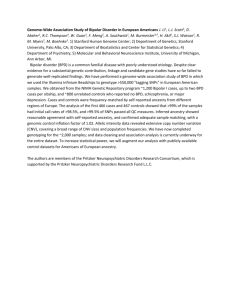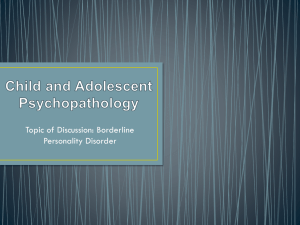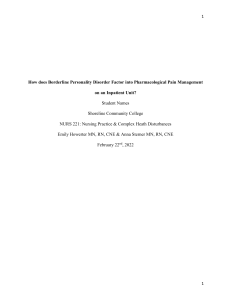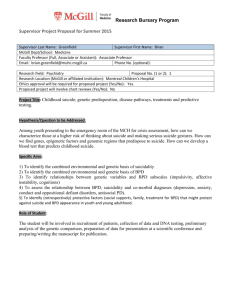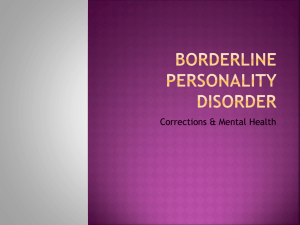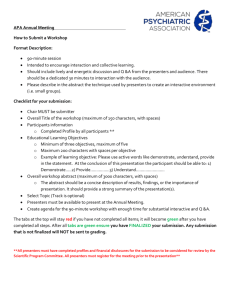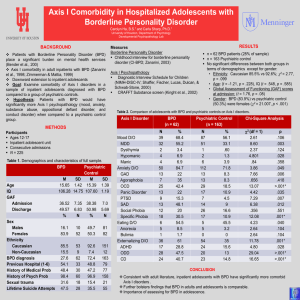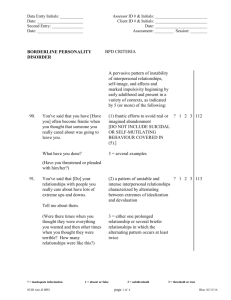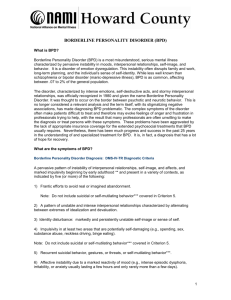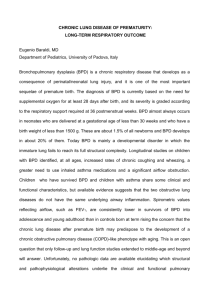Borderline Personality Disorder
advertisement
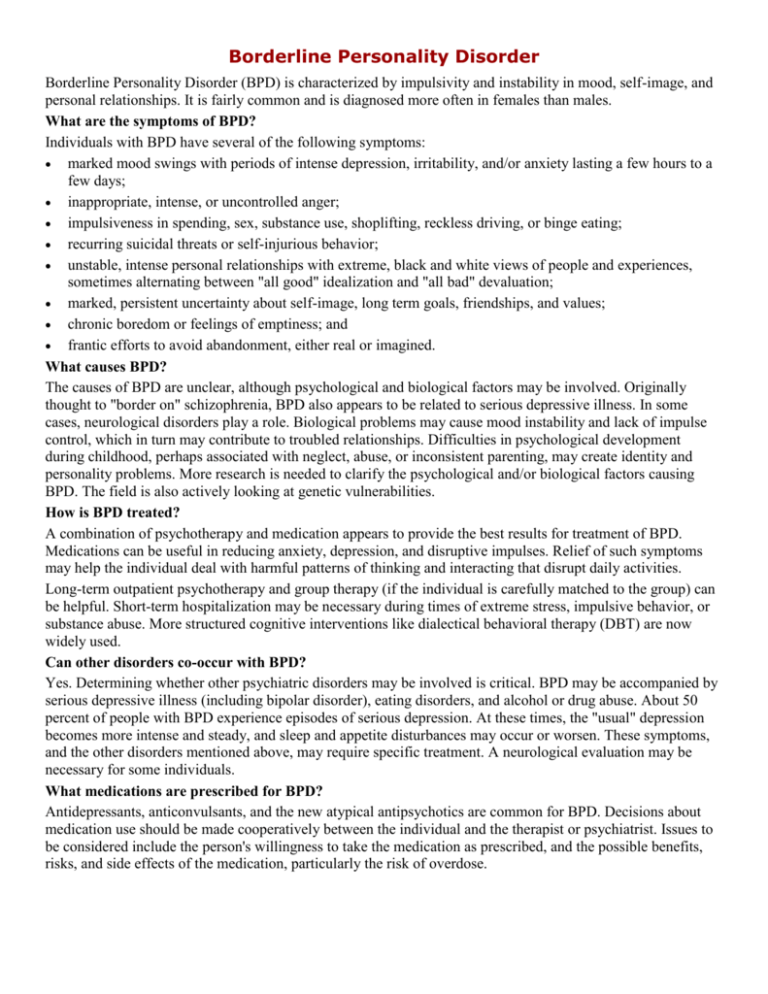
Borderline Personality Disorder Borderline Personality Disorder (BPD) is characterized by impulsivity and instability in mood, self-image, and personal relationships. It is fairly common and is diagnosed more often in females than males. What are the symptoms of BPD? Individuals with BPD have several of the following symptoms: marked mood swings with periods of intense depression, irritability, and/or anxiety lasting a few hours to a few days; inappropriate, intense, or uncontrolled anger; impulsiveness in spending, sex, substance use, shoplifting, reckless driving, or binge eating; recurring suicidal threats or self-injurious behavior; unstable, intense personal relationships with extreme, black and white views of people and experiences, sometimes alternating between "all good" idealization and "all bad" devaluation; marked, persistent uncertainty about self-image, long term goals, friendships, and values; chronic boredom or feelings of emptiness; and frantic efforts to avoid abandonment, either real or imagined. What causes BPD? The causes of BPD are unclear, although psychological and biological factors may be involved. Originally thought to "border on" schizophrenia, BPD also appears to be related to serious depressive illness. In some cases, neurological disorders play a role. Biological problems may cause mood instability and lack of impulse control, which in turn may contribute to troubled relationships. Difficulties in psychological development during childhood, perhaps associated with neglect, abuse, or inconsistent parenting, may create identity and personality problems. More research is needed to clarify the psychological and/or biological factors causing BPD. The field is also actively looking at genetic vulnerabilities. How is BPD treated? A combination of psychotherapy and medication appears to provide the best results for treatment of BPD. Medications can be useful in reducing anxiety, depression, and disruptive impulses. Relief of such symptoms may help the individual deal with harmful patterns of thinking and interacting that disrupt daily activities. Long-term outpatient psychotherapy and group therapy (if the individual is carefully matched to the group) can be helpful. Short-term hospitalization may be necessary during times of extreme stress, impulsive behavior, or substance abuse. More structured cognitive interventions like dialectical behavioral therapy (DBT) are now widely used. Can other disorders co-occur with BPD? Yes. Determining whether other psychiatric disorders may be involved is critical. BPD may be accompanied by serious depressive illness (including bipolar disorder), eating disorders, and alcohol or drug abuse. About 50 percent of people with BPD experience episodes of serious depression. At these times, the "usual" depression becomes more intense and steady, and sleep and appetite disturbances may occur or worsen. These symptoms, and the other disorders mentioned above, may require specific treatment. A neurological evaluation may be necessary for some individuals. What medications are prescribed for BPD? Antidepressants, anticonvulsants, and the new atypical antipsychotics are common for BPD. Decisions about medication use should be made cooperatively between the individual and the therapist or psychiatrist. Issues to be considered include the person's willingness to take the medication as prescribed, and the possible benefits, risks, and side effects of the medication, particularly the risk of overdose.
